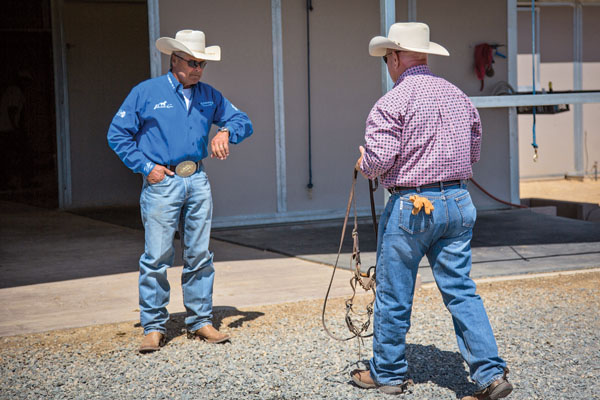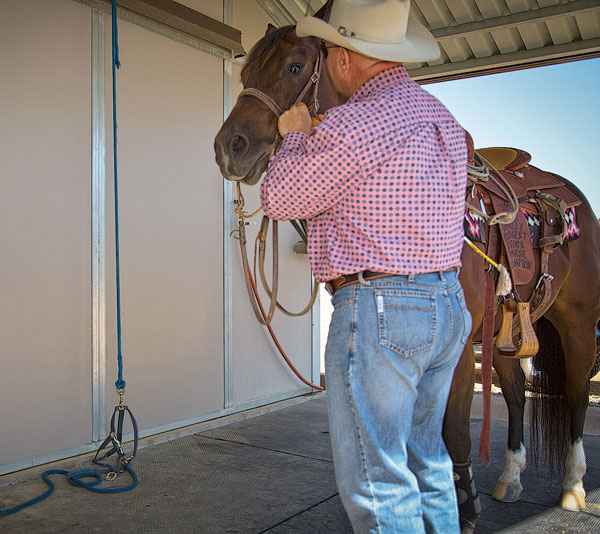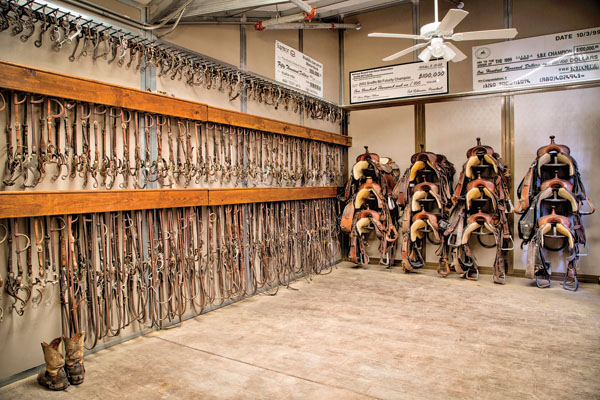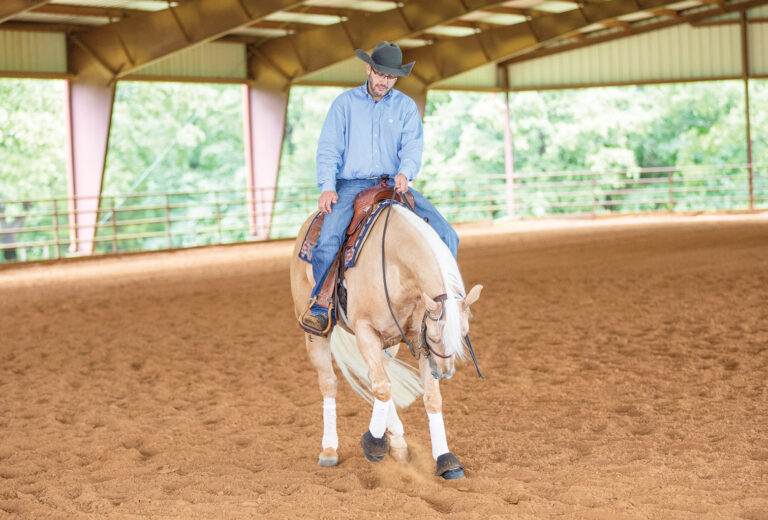We trainers understand that horses are (more likely than not) your hobby. Whether you ride as a serious competitor or are in it for the fun and camaraderie, riding is your extracurricular activity. Some people play golf or tennis; you chose horses.

On the flip side of that coin, your trainer makes his living coaching amateur riders, caring for their horses, and guiding their experiences. Horses are what you do after your day job, but training horses and riders is your trainer’s day job.
I have a few tips for training-barn etiquette that’ll keep your hobby fun while also respecting your trainer’s profession.
Be on Time
It’s really a matter of common courtesy. If you schedule a lesson at 10 a.m., be on time. Or, even better, arrive 10 minutes early! Your trainer’s day probably starts early—we’re “on the clock” at 6 a.m.—so he doesn’t have time to wait around for you. If you’ll be late or have to cancel, call or text as soon as you know the situation. That way your trainer doesn’t waste time waiting on you. Would you arrive 20 minutes late to a doctor appointment, or blow it off completely without calling? I doubt it.
Along that line, if you want to watch your trainer ride your horse, call first (and be on time). Yours might be the first horse he rides in a day, so if you arrive unannounced after lunch, your horse will have already had his session. If you call ahead, your trainer can move your horse to the agreed-upon time.
Key takeaway: Treat your trainer’s operation like the business that it is.
Clean Up After Yourself
Trainers invest a lot of money in their equipment. Bits, bridles, reins, pads, saddles—they’re the tools of our trade, just like a carpenter’s saws and hammers. Respect our equipment and put it back where you found it. And that doesn’t just go for tack; it applies to fly spray, brushes, hoof picks, and any other barn items.

I take excellent care of all of my gear, both to maintain its value and because I don’t want to replace things over and over again if I don’t have to. I bet your trainer is of the same mind.
If your trainer has a certain way of storing tack or pet peeves about the care of his gear, be aware. I can’t stand halters left on the ground in the crossties. My customers appreciate that and (most of the time) they put the halters away before they go ride.
Key takeaway: You expect your kids and officemates to respect your property. Maintain that expectation of yourself at the barn.
Don’t Gossip
Every barn has a gossip. The one who airs out their gripes to the help or other customers instead of going to the head trainer. There’s always someone who likes to stir the pot. Don’t be that customer. Gossip builds resentment between riders and can ruin your barn experience. This is your hobby. It’s supposed to be fun, not a soap opera!
Furthermore, if you have an issue, go to your trainer and discuss it immediately. If you feel like your horse is getting short-changed in some way, talk about it. Or if you think there’s a problem with your bill, bring it up with the trainer. Don’t complain to other customers or assistant trainers. That just causes more problems. Yes, some trainers are harder to talk to than others. But you probably had a good idea about his personality when you put your horse in training with him.
Key takeaway: Don’t be the barn gossip. Your reputation will precede you in the rest of the horse world.
Get Involved
It’s your horse. Be a part of the experience. Come out to watch your trainer ride your open horse or school your non-pro mount. You’ll learn from watching in a different setting than a normal lesson. Plus, it fosters a positive relationship with your trainer by showing that you’re truly vested in your horse’s training.
Key takeaway: Take the initiative to be involved. You pay a lot for this hobby; get the most that you can out of the experience by actively participating in your horse’s life.
Pay Your Bill
I’ll do the best job I can with my customers’ horses. The only thing I expect is to get paid. On time. Would you take your car to get new tires and then tell the shop that you can’t pay for them because your mortgage is due? Not likely. Treat your trainer with the same respect.

If you don’t pay your bill, then I can’t buy feed for your horse or pay my barn mortgage to keep a roof over his head. Running a training barn is very expensive, and nonpayment causes a lot of problems.
Key takeaway: Training and lessons are expensive. Figure out if you can afford it under all circumstances before entering a professional agreement.
Have Expectations of Your Trainer
Keeping a positive barn culture isn’t all on the customers. It’s a two-way street, and the trainer has to live up to his commitments, too. He should keep you informed about any changes in your horse’s progress or in barn protocols. Expect honesty, and if you don’t feel like you’re getting it, have a discussion immediately. The right trainer will help you set and achieve goals and get to know what you want out of the experience. That’s all part of his job; because that’s what it is—his professional career.
Key takeaway: Take time to find the right trainer for you and your expectations.
A multiple AQHA world champion, Avila has also won three NRCHA Snaffle Bit Futurities, the NRHA Futurity, and two World’s Greatest Horseman titles. He received the AQHA Professional Horseman of the Year honor. His Avila Training Stables, Inc., is in Temecula, California. Learn more at bobavila.net.






